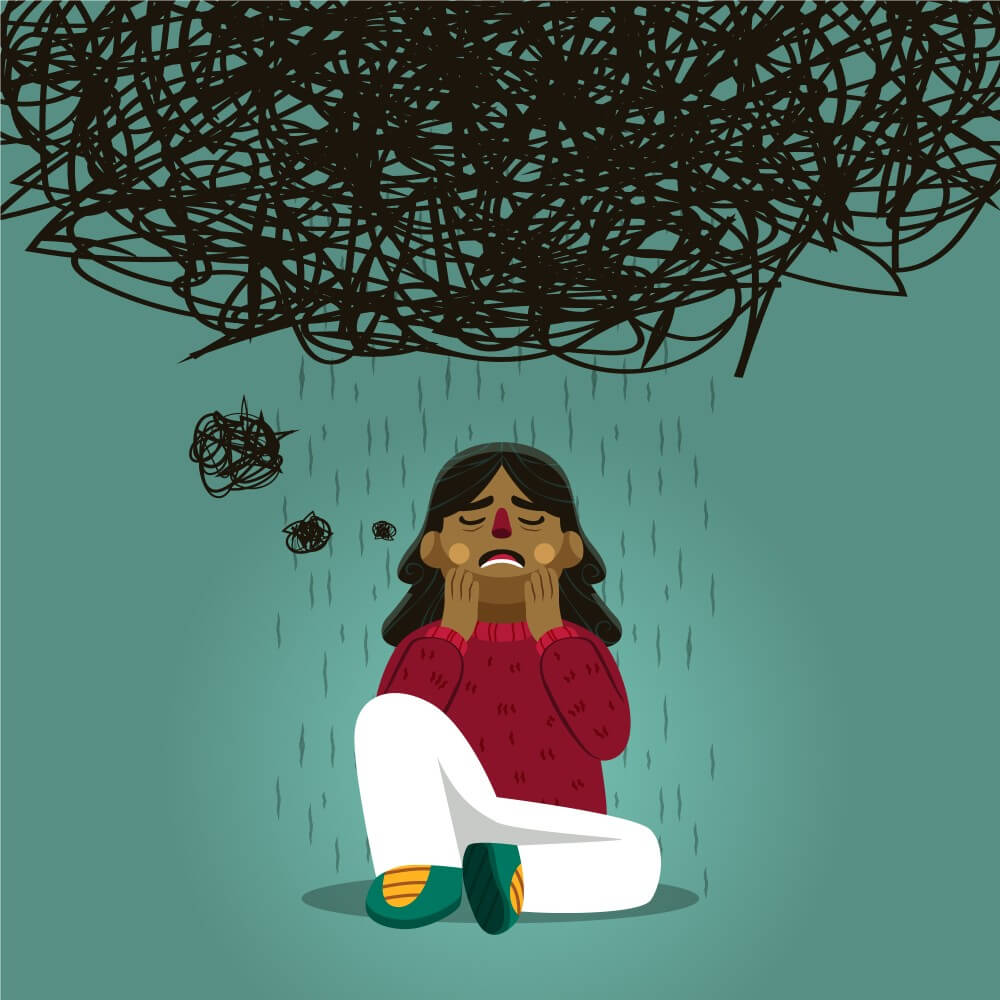There is a kind of anxiety that rises up like a wave—not sudden, not irrational, not the result of faulty thinking or poor coping, but steady, cumulative, and earned. A body that has learned the world is not safe, not soft, not designed for it. A body that has been punished for asking for help, or for reacting too strongly, or for not reacting at all. A body that is trying to survive.
For many neurodivergent people, anxiety is not a symptom. It is not a flaw in our thinking. It is a highly calibrated threat response forged through lived experience—through years of masking, misunderstanding, punishment, and unmet needs. When we feel anxious, it is because we are unsafe. Or we have been unsafe so many times that our nervous systems no longer wait for proof.
And yet schools—along with many therapeutic and parenting models—persist in approaching anxiety through a neurotypical lens. “There’s nothing to be afraid of.” “You’ll be fine once you’re there.” “It’s just your anxiety talking.” “You’re catastrophising.” “Don’t let it control you.”
What they mean, often, is: Your body is wrong.
What we hear, often, is: You are wrong for having that body.
This is not a misfiring brain. This is a body that remembers
Neurodivergent anxiety is not a phobia, a fear of public speaking, or an unfounded worry about a test. It is walking into a room that has hurt you before. It is sitting at a desk that holds the memory of last week’s outburst, or last month’s restraint. It is knowing that if you speak the truth too directly, you will be called rude. That if you need space, you will be seen as non-compliant. That if you break down, you will be shamed.
And because so many of us have been trained to ignore what our bodies tell us, we dissociate. We become numb. We perform okay-ness. We sit still while our heart pounds, smile while our vision narrows, comply while every cell screams no. We learn to make our anxiety invisible to others—because visible distress is so often punished.
But just because we’ve learned to hide it, does not mean it has gone away.
You cannot positive-think your way out of trauma
Too often, the supports offered to neurodivergent children are variations of the same harmful idea: that anxiety is something to be reasoned with, distracted from, or extinguished. Deep breaths. Token charts. Exposure therapy. “Social thinking.” They ask us to think our way out of feeling. To act as if our bodies are not flooded with adrenaline, not stuck in fight-flight-or-freeze, not desperate for safety.
But this is not a cognitive problem. It is a physiological one. It is not the child who needs fixing—it is the environment, the pace, the expectations, the disbelief.
And when these “supports” fail, when the child still cannot make it into the classroom or still lashes out or still collapses in tears, they are framed as avoidant, oppositional, unmotivated. Their suffering is medicalised or moralised. Is he on medication? Their refusal is pathologised.
But what if their refusal is wisdom?
Safety is not the absence of reaction—it is the presence of care
Be a safe place!
What neurodivergent children need is not a stronger will, or a more resilient mindset, or better coping strategies. They need adults who trust their nervous systems. Who believe them. Who slow down, lower demands, soften the room. Who recognise that a child hiding under a table or walking out of class or crying in the hallway is not misbehaving—they are communicating.
We need trauma-informed, neurodivergence-affirming care that honours the body as the first and final authority on safety.
We need a school system that understands anxiety not as a personal failing but as an environmental indicator.
And we need to stop treating anxiety as something to conquer. It is not a dragon. It is not a test. It is not an enemy.
It is a signal.
And when we listen to it—not silence it, not reframe it, not rationalise it—we might finally understand what these children have been trying to tell us all along.







